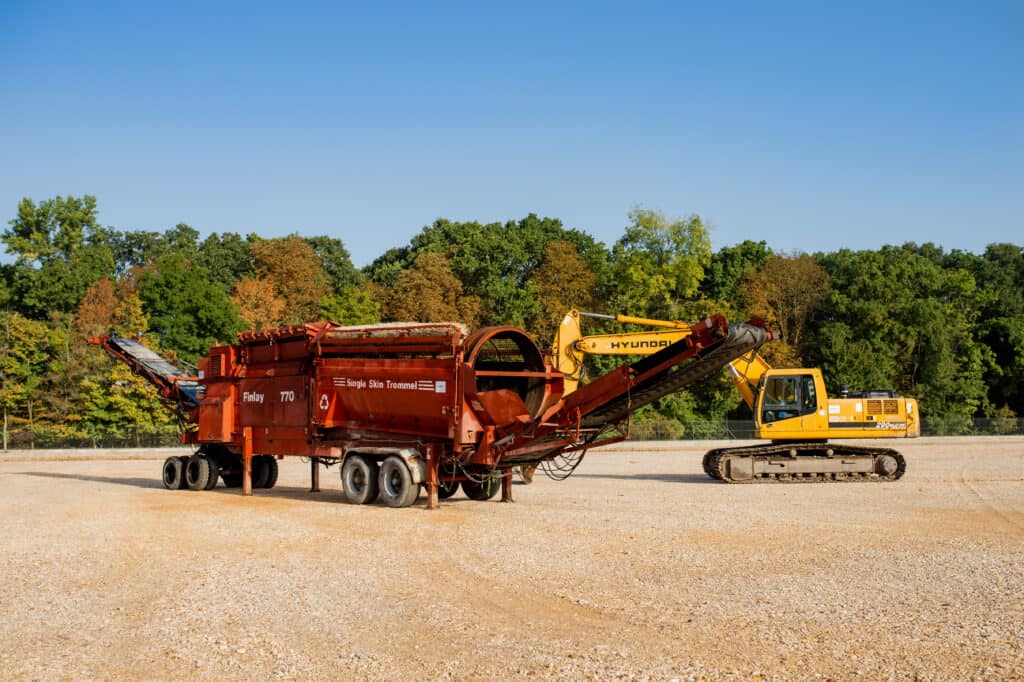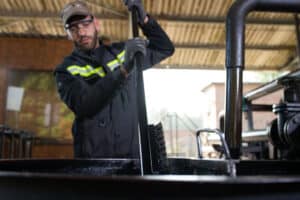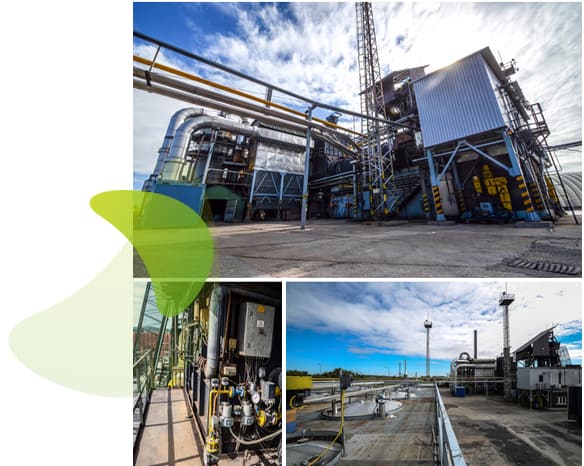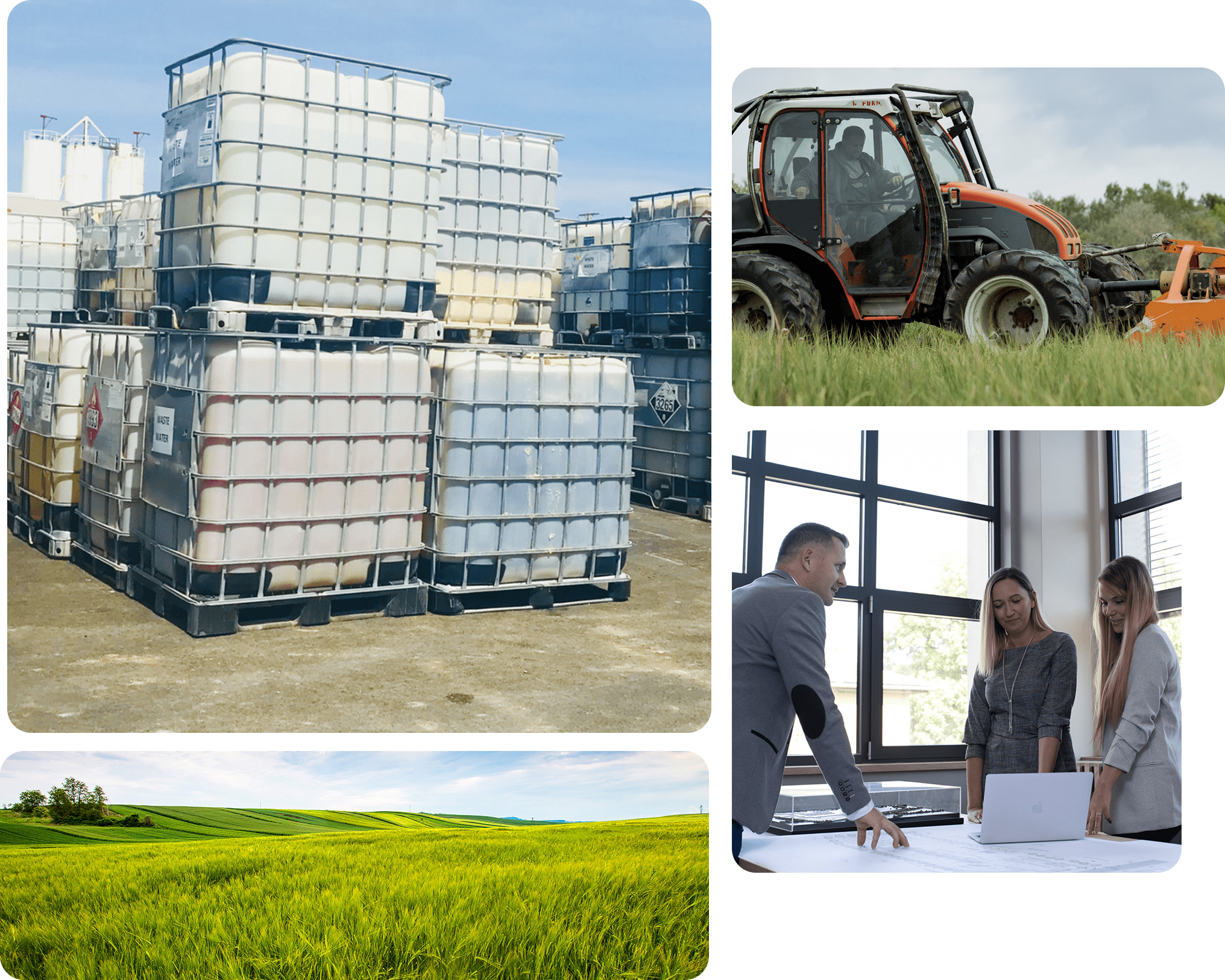With our nationwide infrastructure, we provide comprehensive solutions for industrial clients in the management of hazardous and non-hazardous waste. Our operations focus primarily on recovery technologies and secondarily on disposal methods.
As part of our service:
-
We design the appropriate treatment method for the waste to be delivered
-
We organize the collection of the waste
-
We arrange ADR-compliant transport of the waste
-
We plan the economically and environmentally optimal processing of the waste at designated treatment endpoints
Certifications: ISO 9001, 14001, 28001, 27001, 28000
Our technologies include:
-
Biological recovery: R3
-
Metal recovery from metal-containing sludges: R4
-
Waste oil regeneration and oil product production: R9
-
Landfilling in technically controlled basins: D5
-
Thermal disposal: D10
-
Transport of hazardous and non-hazardous waste
-
Collection of hazardous and non-hazardous waste
-
Recovery of acids and alkalis: R5

Biological Recovery
Our companies engaged in biological recovery (R3 and R12 biodegradation processes) produce reclamation cover material from industrial production waste and by-products. This soil substitute is suitable for the rehabilitation of disturbed landscapes, such as areas damaged by industrial activities, remediated zones, spoil heaps, and landfills. With properties and components similar to natural soil, and as demonstrated by our decades of experience, it provides a viable medium for vegetation to take root and ecosystems to reestablish.

Metal Sludge Recovery
Using metal-containing sludges, industrial acids, and alkalis as recoverable raw materials, we produce metal salts, metal hydroxides, and trace element supplements for the feed industry through R4 recovery processes. Our core objective throughout the recovery procedure is to minimize the generation of secondary waste, and wherever possible, reintroduce it into the recycling process or recover it as a material.
Treated waste types include:
-
Electroplating sludges
-
Phosphate sludges
-
Metal-containing waste solutions
-
Pickling liquors
-
Non-ferrous metal-containing powders
-
Slags
-
Waste acids and alkalis
Products resulting from the recovery process:
-
Zinc sulfate monohydrate for the feed industry
-
Zinc sulfate solution and zinc chloride solution for agricultural applications

Waste Oil Regeneration
We specialize in the pre-treatment of waste and used oils, from which we produce flux oil using vacuum distillation technology (R9 recovery process).
We also recover oil-contaminated materials and packaging waste as part of the process.
The resulting flux oil is a valuable raw material for bitumen production and can be used in road construction.

Seed Waste Recovery
Instead of the previously used thermal disposal method for hazardous agricultural waste (e.g., treated seeds), we have developed an environmentally friendly treatment process that enables the recovery of such waste through biodegradation.

Thermal Disposal
We recommend thermal disposal for hazardous materials—either generated during waste processing or originating from our clients—that cannot be treated by other recovery technologies, or for which incineration is the most effective solution at the current level of technological development.
We also strive to recover the residues left after incineration. Our primary focus is on the disposal of hazardous solid waste, chemical, biological, and medical waste through controlled high-temperature incineration.

Landfill Operation
We have decades of experience in the construction, operation, and closure of landfills. Based on documentation prepared by qualified design firms, we construct the landfill foundation according to specified materials, layer structures, and the technology recommendations of the manufacturer.
During operation, we accept waste types in accordance with the relevant permits, carry out pre-treatment as needed, and deposit the incoming materials appropriately.
We manage the full administrative process, including communication with regulatory authorities. Once the landfill reaches capacity, we carry out a professional closure in compliance with EU regulations, based on an approved implementation plan. We also take responsibility for post-closure monitoring and maintenance of the site.


